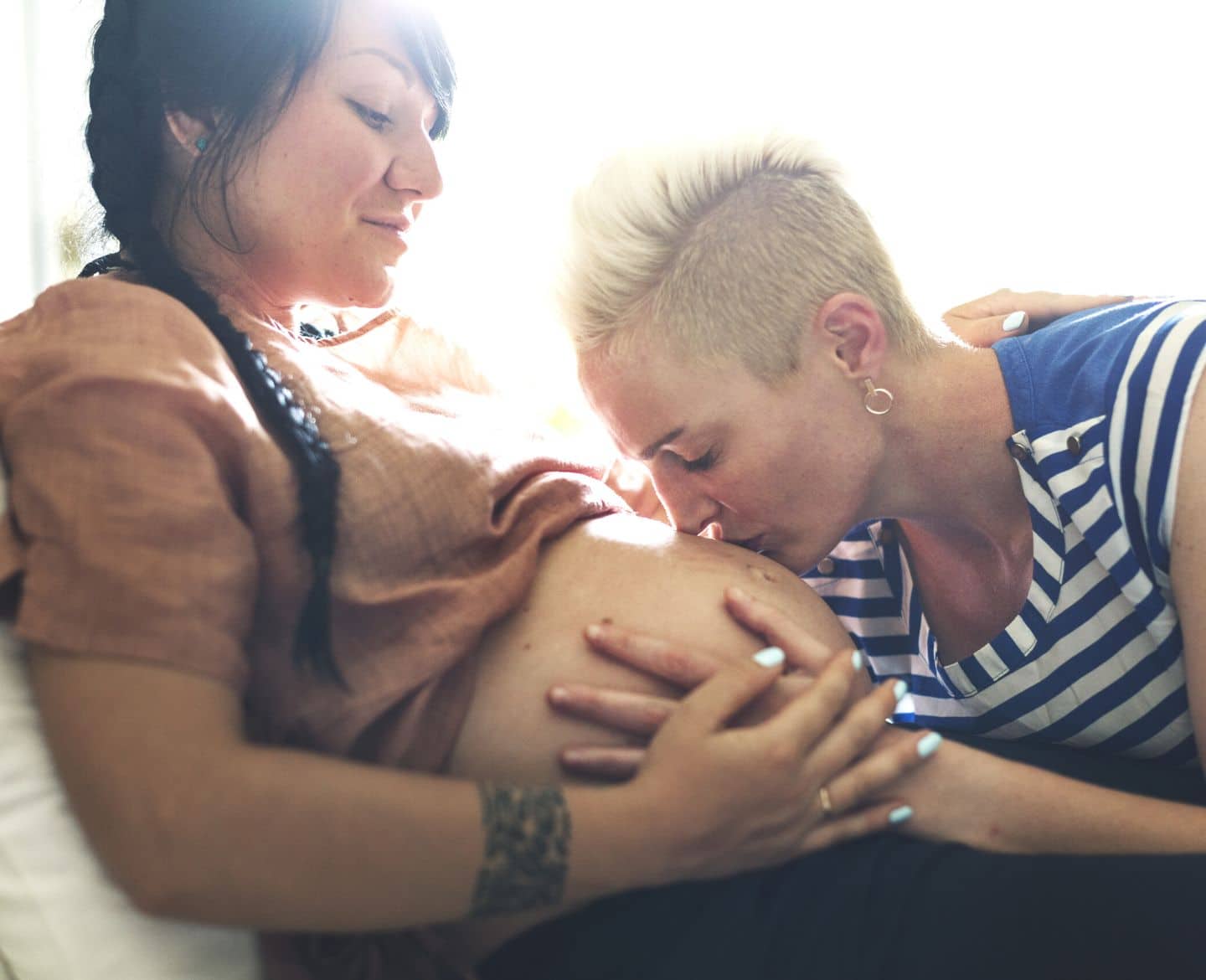Here’s why we need an expanded definition of infertility
Fertility care often leaves out LGBTQ+ people and single women. An expert shares how to make it more inclusive.

rawpixel.com/Shutterstock
The Biden Administration is currently reviewing an update of the Affordable Care Act—a decision poised to increase fertility access for the LGBTQ+ community and single women. The decision would expand the definition of infertility to include policyholders regardless of sexuality or gender identity for some plans under the ACA. The update would affect over 31 million insured Americans—but won’t cover everyone.
The barriers to single women and queer people won’t be addressed through a single ACA update. Industry-wide insurance practices, exorbitant costs and overburdened clinics leave many hopeful parents behind in fine print and mounting debt—regardless of Biden’s decision.
When I began my own fertility journey at age 36—considered a “geriatric” pregnancy—I saw firsthand how overwhelming the process of starting a family is. But there are ways to make the fertility industry more equitable and accessible for everyone.
We need updated, inclusive language
Most insurance benefits policies offer covered fertility treatments only after proof of infertility. Most people realize that the current definition of infertility—the inability to conceive after 12 months of unprotected sex—discriminates against queer and trans couples. But this definition also impacts single women trying to conceive without a partner.
In some states, insurance companies include unsuccessful intrauterine insemination (IUI) as proof of infertility, but for both single women and LGBTQ+ parents, the out-of-pocket costs for this treatment are often prohibitive—ranging from a few hundred dollars to over $4,000 for a single cycle. Additionally, same-sex male couples are completely excluded from this care because they can’t meet the definition of infertility via sex or through IUI.
Simply put, the definition of infertility puts an unequal burden on many families. And even if the Biden Administration decides in favor of a more expansive definition, this won’t apply to all insurance policies. It’s a step in the right direction, but we need wider-reaching policy changes for all insurance companies.
When I founded Mira, an at-home hormone tracking device, I wanted potential parents to have the ability to take family planning into their own hands, regardless of their age, sexuality or gender.
This starts with more accessible resources and conscientious healthcare providers, but it’s also about changing the way we think about child rearing, parenthood and the many shapes family takes. Narrow definitions of infertility and sex should not be a barrier to LGBTQ families and single women—and these communities need across-the-board language updates to guarantee their access to fertility treatment by all insurance policies.
Related: It’s time to stop calling infertility a women’s health issue
We need legal protections for fertility preservation
Insurance coverage gets even more complicated when a person becomes infertile due to medical treatment or procedures. In this case, some may opt to preserve their eggs or sperm via cryopreservation. If you’re in this position, you know it’s a deeply difficult, and expensive, choice.
Only a handful of states require private insurers to cover fertility preservation in cases of medically-induced infertility. But it’s unclear if this benefit extends to trans people, whose gender affirmation surgery or treatments can result in infertility.
Even insured, the costs of cryopreservation are shocking. Egg preservation can cost an average of $30,000 to $40,000 on treatment and storage, while sperm preservation is about $1,000 with $300 yearly storage fees.
To solve this, there must be federal, legal protection for trans, queer, and single parents seeking to access fertility preservation. We need protections to not only guarantee legal access to insurance coverage and medical care, but also financial access for all. Some banks, like California Cryobank, offer deeply discounted rates to trans and non-binary clients—which should be standard practice until legal protections are in place.
Related: Legal basics for forming LGBTQ+ families
We need remote access for respectful care
With millions of families seeking care, and less than 500 fertility clinics across the US, there are simply not enough specialists, let alone accessible specialists, to meet the demand for treatment.
I’ve spoken to dozens of people who’ve turned to Mira because their options for local care were so limited. For those who did go to a healthcare provider, they faced offensive comments, invasive questions, heteronormative paperwork, and in the case of single women, repeated questioning about where their husbands or partners were. This is unacceptable, especially in a field where every passing month and year trying to find accessible, respectful care means more time lost.
Virtual and at-home options can help close this gap, especially for those in rural areas. Digital fertility trackers help LGBTQ+ and single people access health information at home, minimize clinic visits and improve their chances for successful fertility treatments by providing actionable data and insights about one’s cycle.
It’s up to all of us—healthcare providers, clinics and business leaders—to make sure all families are represented and cared for in this emerging technology.
About the author
Sylvia Kang is the co-founder and CEO of Mira.
Sylvia holds an MBA from Cornell University, and a MS in Biomedical Engineering from Columbia. Before she started Mira, she was in business director roles in a Fortune 500 life science company, running a $100M global business.
As many women in their 20s, Sylvia prioritized advanced education and career opportunities over family planning. When one close friend of hers started to try for a baby, she had no success after six months of trying. Doctors couldn’t find any problems with her or her husband, and Sylvia witnessed her going through a very stressful, guessing and disappointing journey.
The existing fertility products didn’t help because they couldn’t pinpoint what went wrong or give enough insights to be her guide. She eventually got pregnant through IUI, which was time-consuming and expensive. This is a general and trending issue faced by more and more women today.
Shortly, Sylvia left her corporate job and used her biomedical degree to create Mira on a mission to give women the accuracy of lab testing at home.
Sylvia is also a Concert Pianist. She has won multiple international piano competitions in France, China, and Hong Kong.


